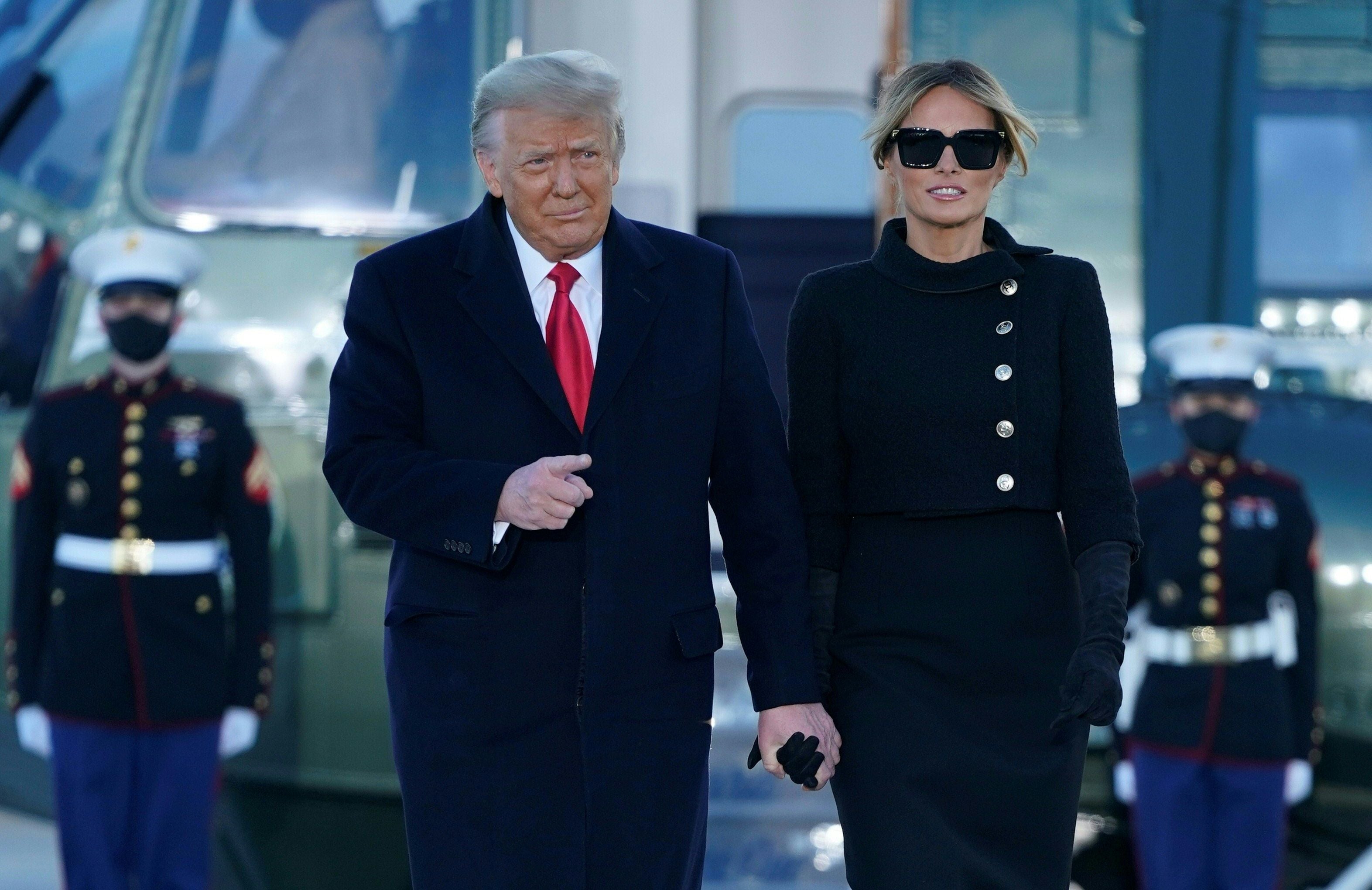Why didn’t Trump pardon himself and his family? It could be strategic
Likewise, the amount of Republicans who ended up on the list were probably there for a reason

Your support helps us to tell the story
From reproductive rights to climate change to Big Tech, The Independent is on the ground when the story is developing. Whether it's investigating the financials of Elon Musk's pro-Trump PAC or producing our latest documentary, 'The A Word', which shines a light on the American women fighting for reproductive rights, we know how important it is to parse out the facts from the messaging.
At such a critical moment in US history, we need reporters on the ground. Your donation allows us to keep sending journalists to speak to both sides of the story.
The Independent is trusted by Americans across the entire political spectrum. And unlike many other quality news outlets, we choose not to lock Americans out of our reporting and analysis with paywalls. We believe quality journalism should be available to everyone, paid for by those who can afford it.
Your support makes all the difference.For four years, Americans have been expecting and fearing a wave of pardons in January 2021. In the end, the numbers were underwhelming. Then-President Trump issued relatively few pardons compared to other modern presidents, and no more than other “lame duck” presidents usually do as they leave office.
Of his cronies, family, and “associates,” only Steve Bannon and Republican fundraiser Elliot Broidy were on this list (after he used pardons earlier for Mike Flynn, Roger Stone, and Paul Manafort). He pardoned some of Jared Kushner’s friends and contacts, and Kushner’s father, but Trump pardoned no family members nor himself.
Given how much more legal trouble the Trump family faces than any other presidential family in American history, why did he offer surprisingly few pardons? And what does it tell us about the future?
Trump pardoned relatively few people in the best and most merciful use of the power: the unsung treated unjustly, the possibly innocent, the repentant, the guilty who had been sentenced too long. Instead, he used more pardons for celebrities and celebrity connections: a few hip-hop stars, the brother of a retired football star. None of that is particularly surprising.
First, it seems likely that some Trump associates may have avoided asking for pardons or reversed requests for pardons, considering that the media reported in October a bribe-for-pardon criminal investigation underway in the Department of Justice. Whereas pardons usually relieve criminal liability, these pardons could have attracted too much attention for investigators. Considering that pardons can’t relieve liability for future criminal acts, the acceptance of a bribed pardon is a criminal step that happens after the pardon was drafted and cannot be covered.
Second, “preemptive” pardons issued before any charges are filed still require some specificity for which offenses are covered. The Constitution says pardons are for “offenses against the United States,” not pardons for a “person,” so those offenses must be described with at least some clarity. Trump’s associates and family, and perhaps Trump himself, balked at having to list acts and offenses they were worried about. Accepting such a pardon is not formally a confession, but it is politically awkward, even if one adds the words “fake news” or “witch hunt” to the pardon’s text.
Relatedly, many of these associates may have been more hurt than helped by a presidential pardon. “Offenses against the United States” are limited to federal crimes, and many of these Trump associates are facing state charges for the same crimes. For example, Steve Bannon had been indicted for federal “wire fraud” and “mail fraud.” But the words “wire” and “mail” are there not because Bannon was focused on misusing “wire” or “mail.” They are part of the charges only to give federal courts jurisdiction. Many states like New York still have jurisdiction to prosecute the underlying fraud scheme for “We Build the Wall,” and multiple state prosecutors might be even more eager to pursue charges after the pardon, rather than leaving the case to one federal prosecutor.
If Trump’s associates backed off of pardons because they understood these problems, then there was less of a big wave of pardons this week to add in a few more for family and friends. They would have stuck out even more conspicuously and made more headlines.
Impeachment may also have deterred Trump in the final two weeks. Before the January 6 insurrection, the former president wanted to keep Republicans in Congress on his side to challenge the election, and a series of corrupt pardons would have threatened their support. Perhaps Trump intended to wait until after January 6 to pardon his family, but then impeachment extended the threat to his political viability — first he wanted to reduce the number of House members voting to impeach, and he still had to worry about alienating Senate Republicans before the upcoming trial.
In the end, Trump used more pardons for former Republican members of Congress and more friends of current Republicans in Congress, perhaps to keep the party on his side in the short term for the trial and long term for a new campaign. But perhaps there is another plan underway: Trump has signaled an interest in starting a new party if the Republican Party abandons him. By pardoning so many corrupt politicians or the corrupt friends of Republican politicians, is he reaching out to bring them on board? Either way, those plans may be interrupted by the federal and state prosecutions he couldn’t or wouldn’t pardon.
Join our commenting forum
Join thought-provoking conversations, follow other Independent readers and see their replies
Comments